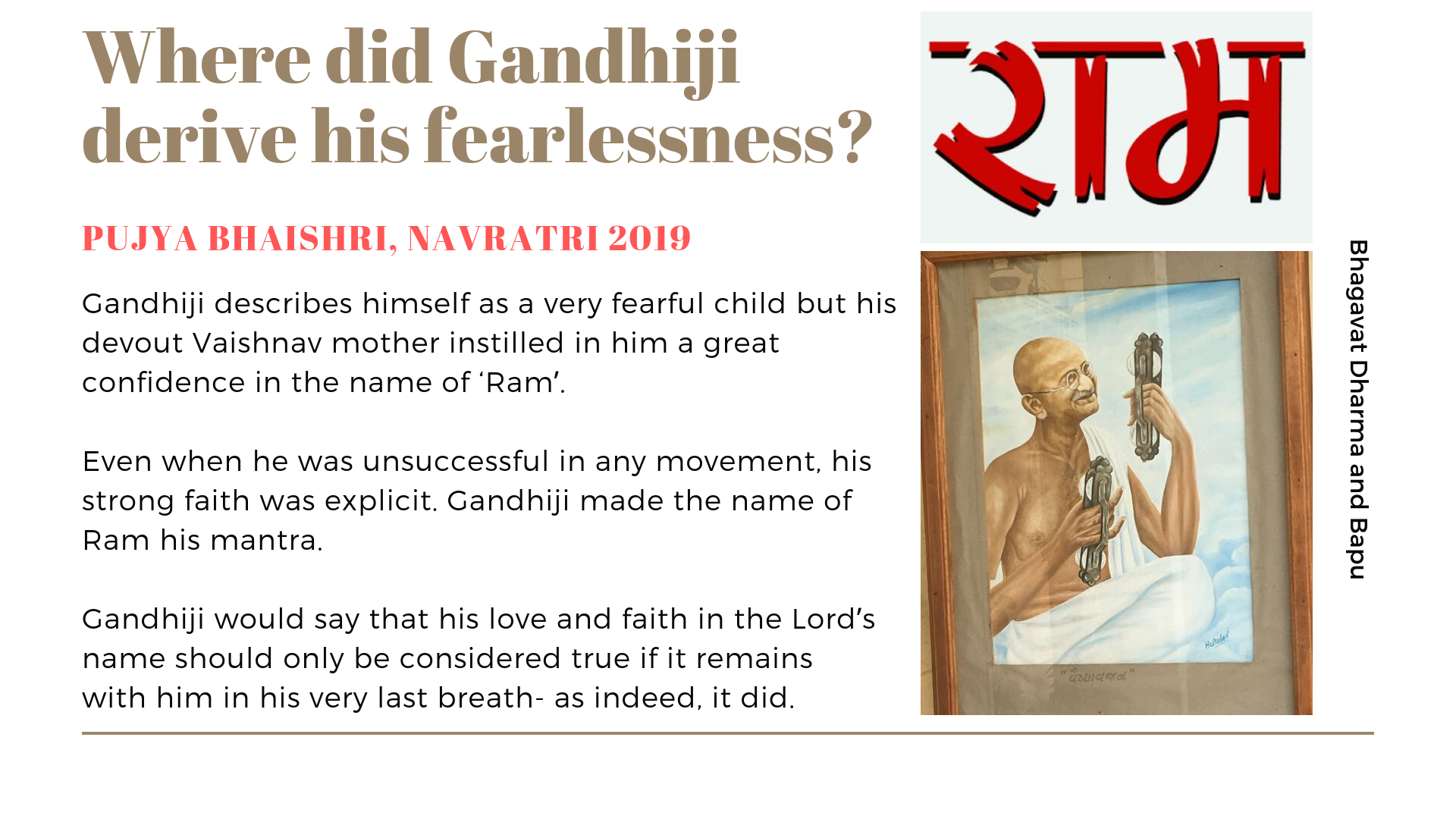The second day of the 38th Navratri Anushthan began with the musical recitation of Shri Ram Charit Manas in the morning, a thirty-minute lecture by Shri Ajay Umat, a well-known and respected Senior Journalist, writer and orator from Ahmedabad, India. This was followed by ‘Bhagavat Dharma and Bapu’ Katha by Pujya Bhaishri.
Pujya Bhaishri said that God’s Katha has been described cleverly through the stories of God’s devotees. For example, the story of Narsimha Bhagavan has been described via the story of Prahladji. From the stories of various devotees, Pujya Bhaishri described the values that were mirrored in Gandhiji’s life.






